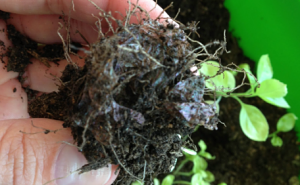
Eco-packaging is on the rise. A glimpse into the movement: #compostable @deliciousliving @lexiconproject #foodlist
Developing a response to the mountains of plastic pollution is a top priority for all of us. One way to reverse the tide of trash is to go after the source: Packaging.
When we dispose of conventional petroleum-based plastic, it is most often sent directly to the landfill. There is no potential for recycling or reuse with this kind of packaging, which is a major problem—and people are beginning to take notice.
Eco-packaging is on the rise due to consumer awareness, but the sad truth is that most recycling facilities are not set up to accept plastics, particularly flexible plastic pouches. And “biodegradable” packaging does not go away like home compost would.
Title: External Costs
Location: Allied Textile Plant, Great Falls of the Passaic River, Patterson, NJ
In 1792, Alexander Hamilton helped found the Society for Establishing Useful Manufactures. The nation’s first industrial park was built at the Great Falls’ of New Jersey’s Passaic River. A succession of industries utilized the river’s embedded energy to build everything from textiles to steel, Colt pistols to locomotives. These companies capitalized on nature. They depended on energy generated by the Passaic and saved money by dumping waste directly into the river. Externalizing those costs led to lower prices and greater profits, at least for a time. While those companies have vanished, the external costs remain. The river is now one of the most polluted in America.
The price of cheap goods is an illusion. Everything costs money. From the water in the strawberries to the plastic bags and stickers carrying your goods. You pay at the checkout stand or you pay in other more oblique ways. These external costs are hard to see. In fact, sometimes they’re only visible to future generations.
Compostable packaging: An alternative to our plastic problem
The OSC² (One Step Closer to an Organic Sustainable Community) Packaging Collaborative is bringing together leading mission-based food companies dedicated to solving this problem, and reducing the food industry’s plastic footprint. It is up to companies to drive innovation, retailers to support a new kind of package, and consumers to use their purchasing power to push for change. The problem is too big for any one company to address.
Luckily, it has become a movement.
The journey of an eco-friendly company
 Alter Eco shares with us their vision as stewards of land and sea. As food producers, when they think “sustainable,” they think beyond the food and back into the land. With a holistic approach to food production and recognizing the global impact of packaging methods, Alter Ego is leading by example with the use of bio-plastics.
Alter Eco shares with us their vision as stewards of land and sea. As food producers, when they think “sustainable,” they think beyond the food and back into the land. With a holistic approach to food production and recognizing the global impact of packaging methods, Alter Ego is leading by example with the use of bio-plastics.
Alter Eco’s mission is global transformation through ethical relationships with small-scale farmers, and an integral sustainability orientation at every point of the supply chain.
Alter Eco is based on the premise that food is fundamental to life—and whole, healthy, delicious food can make life better for people all over the world. By working directly with the small-scale farmers who grow quinoa, rice, sugar and cacao—helping them institute fair trade and organic practices, and assisting them in improving both quality of food and quality of life—Alter Eco is creating a system that benefits everyone involved.

How do you strive to reduce packaging waste in your day-to-day life?
For the past three years, the Lexicon of Sustainability has sought out the foremost practitioners of sustainability in food and farming to gain their insights and experiences on this important subject. What began as a photography project to spread their knowledge has grown to include short films, study guides, traveling shows, a book, and a website where people can add their own terms to this ever-evolving lexicon. See more at www.lexiconofsustainability.com.
